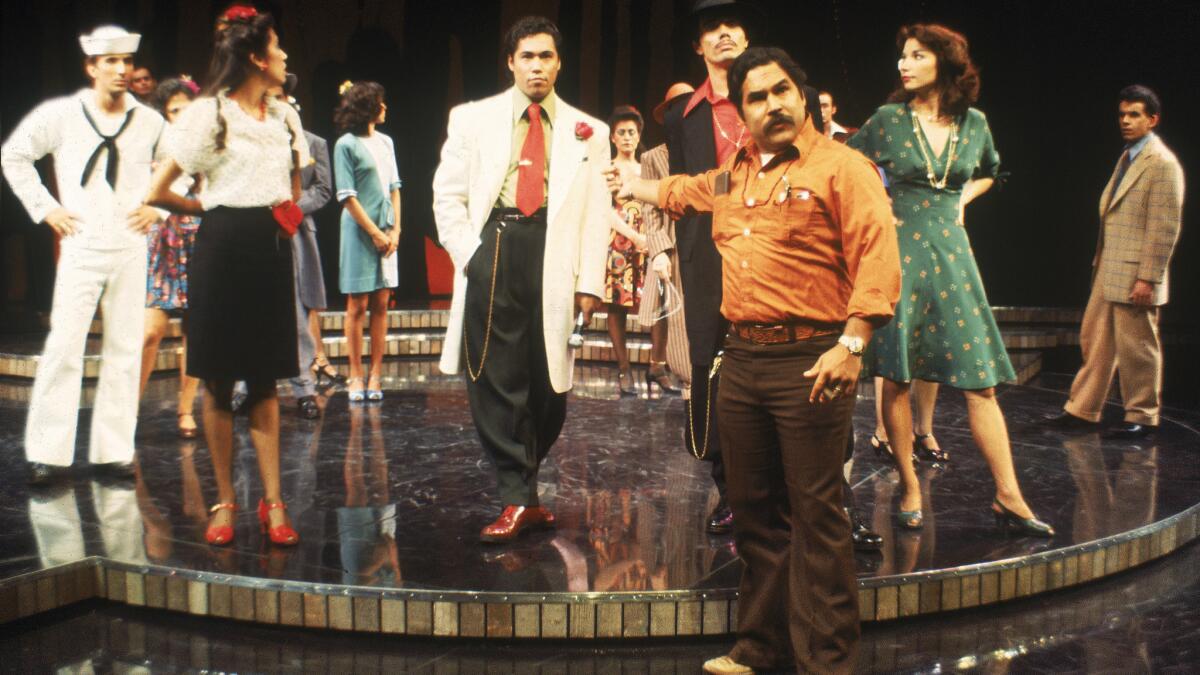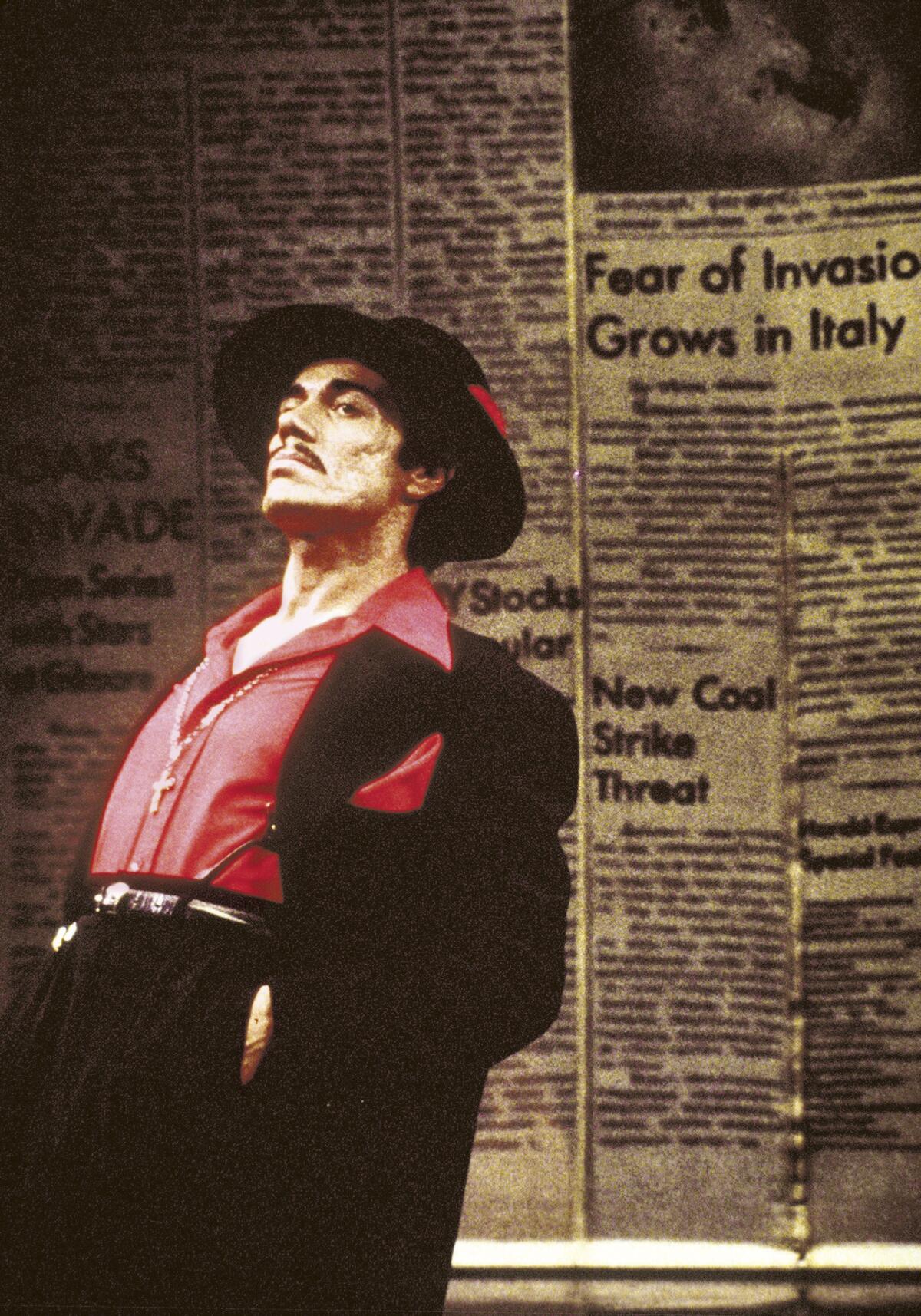‘Zoot Suit’s’ Luis Valdez on how Gordon Davidson brought civil rights to the American theater
- Share via
To his everlasting credit, Gordon Davidson brought the civil rights movement into the American theater by inviting artists of color to work with his company, thus professionally integrating one of the nation’s major regional stages.
During spring 1977, Gordon invited me to Los Angeles to discuss ideas for his New Theatre for Now series. As the founding artistic director of the Mark Taper Forum and the Center Theatre Group, he recognized that merely casting nonwhite actors was not enough. A more fundamental effort required engaging playwrights, directors and producers emergent from the Latino, Asian and African American communities.
The Taper had hosted El Teatro Campesino (The Farm Workers’ Theater) with “La Gran Carpa de los Rasquachis” (Tent of the Underdogs) three years before, bringing Chicano theater to the Taper for the first time. But this time, Gordon was interested only in developing original work dealing with L.A.’s social, cultural and political history.
SIGN UP for the free Essential Arts & Culture newsletter »
I was the first playwright he invited in to discuss his ideas. It had been nine years since I had read a rare copy of Hollywood screenwriter Guy Endore’s 1944 pamphlet “The Sleepy Lagoon Mystery,” about 22 Mexican American zoot suiters unjustly accused of murder. I had never forgotten the killer potential (pun intended) of the most infamous pachuco murder case in Southern California history.
By no strange coincidence, Gordon was on the same track. We agreed that the Sleepy Lagoon case and the subsequent Zoot Suit Riots would be our point of focus.


“Zoot Suit” was the result of a year of deliberations, collaborations and dogged research to find the heart line of the story. Gordon was a true maestro — like an older but wiser brother, supportive but not intrusive, trusting that I would obey my own instincts. I wrote a play with music, interwoven through five swing dance numbers composed by Lalo Guerrero.
On opening night in 1978, when the character of El Pachuco, memorably played by Edward James Olmos, swaggered onto the Taper stage, Chicano theater became American theater.
“Zoot Suit” broke box office records and ran for a year at the Taper and the Aquarius Theater in Hollywood, seen by almost half a million people. It then became the first Chicano play to open on Broadway.
Apparent in the 1940s and obvious by the 1970s, the dynamic, growing multicultural milieu of Los Angeles was the undeniable wave of the future. Gordon had the wisdom and prescience to see it coming. Instead of resisting or ignoring change, he generously gave the voices of the New American Theater an opportunity to speak for themselves. From coast to coast, those voices were heard all the way to the grassroots of the nation, from whence the New American Audience is rising in living colors.
He generously gave the voices of the New American Theater an opportunity to speak for themselves.
Without Gordon’s brilliant, open mind at the helm of the Taper, none of this would have happened. We honor his memory as the unforgettable director, mentor and brother who led us into the 21st century.
In February, the 50th anniversary season of the Mark Taper Forum and Center Theatre Group will open with the revival of “Zoot Suit.” For me, it will be a celebration of all that has been achieved in the last half century, starting with El Teatro Campesino’s birth in the Delano Grape Strike of ’65 and on to my life-changing collaboration with Gordon Davidson. He will be grievously missed, but his undying vibrant spirit will be with us from the first day of rehearsal.
Follow The Times’ arts team @culturemonster.
ALSO
Gordon Davidson didn't just change L.A. theater, he changed L.A.'s image of itself
Playwrights recall the spirit of Gordon Davidson
The biggest entertainment stories
Get our big stories about Hollywood, film, television, music, arts, culture and more right in your inbox as soon as they publish.
You may occasionally receive promotional content from the Los Angeles Times.







